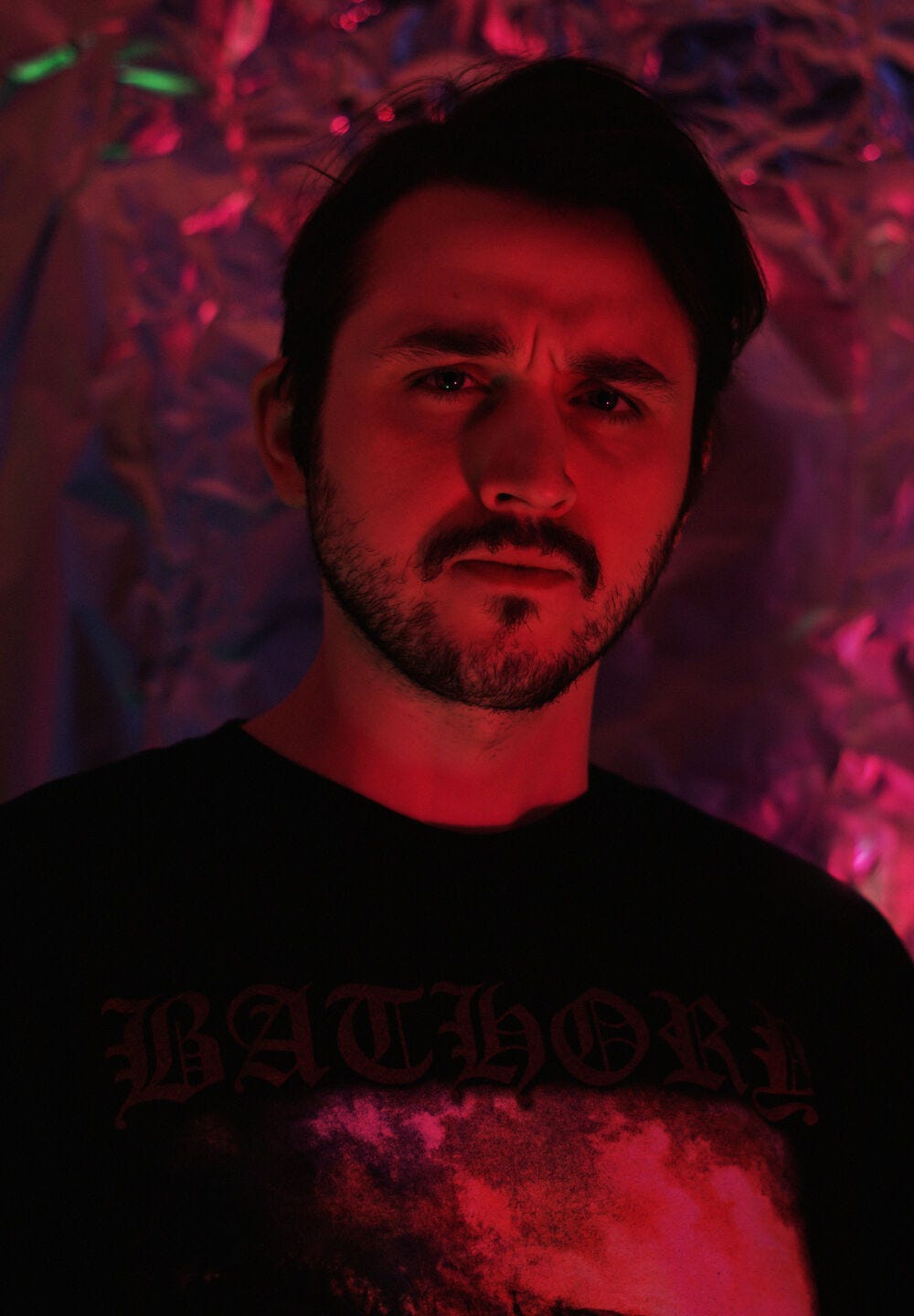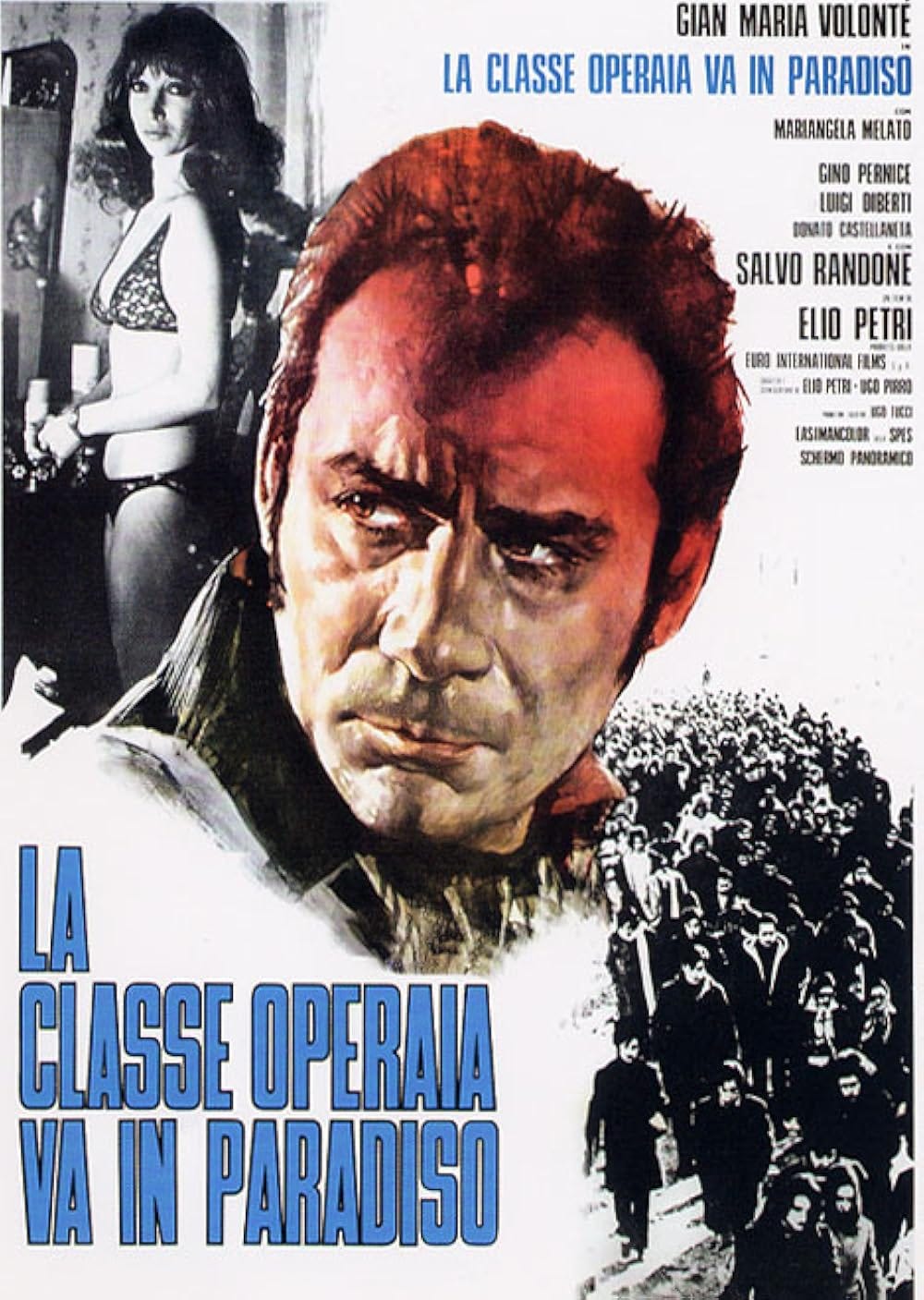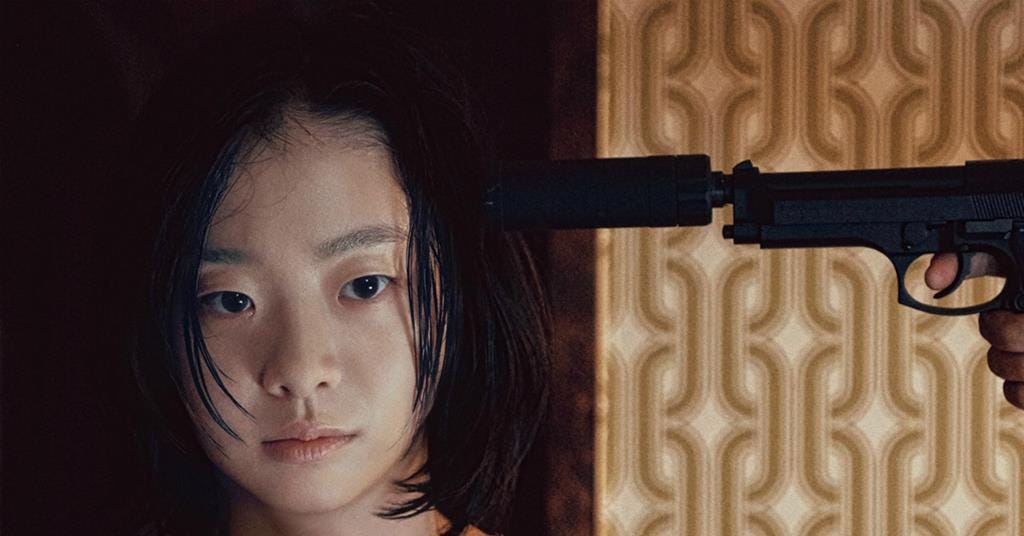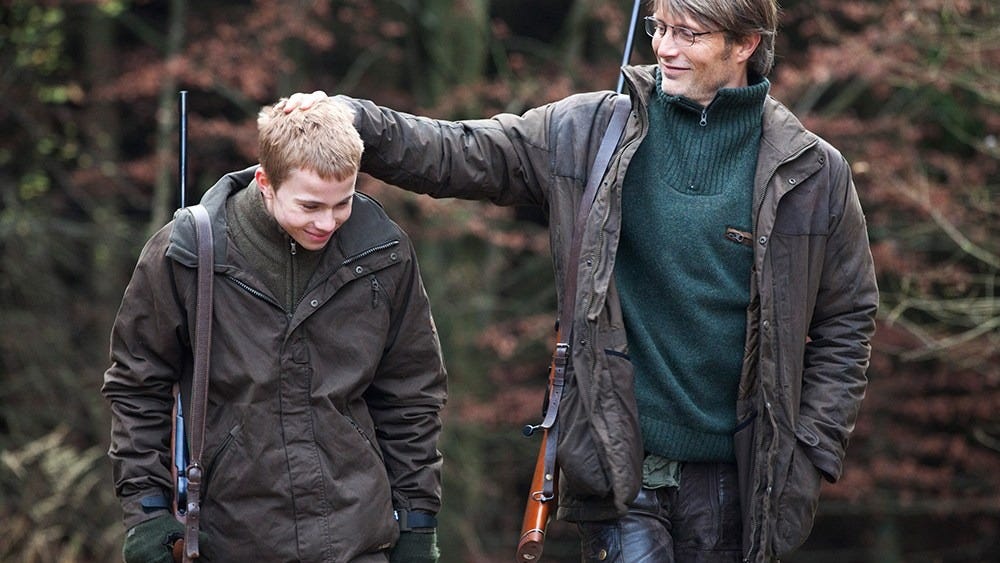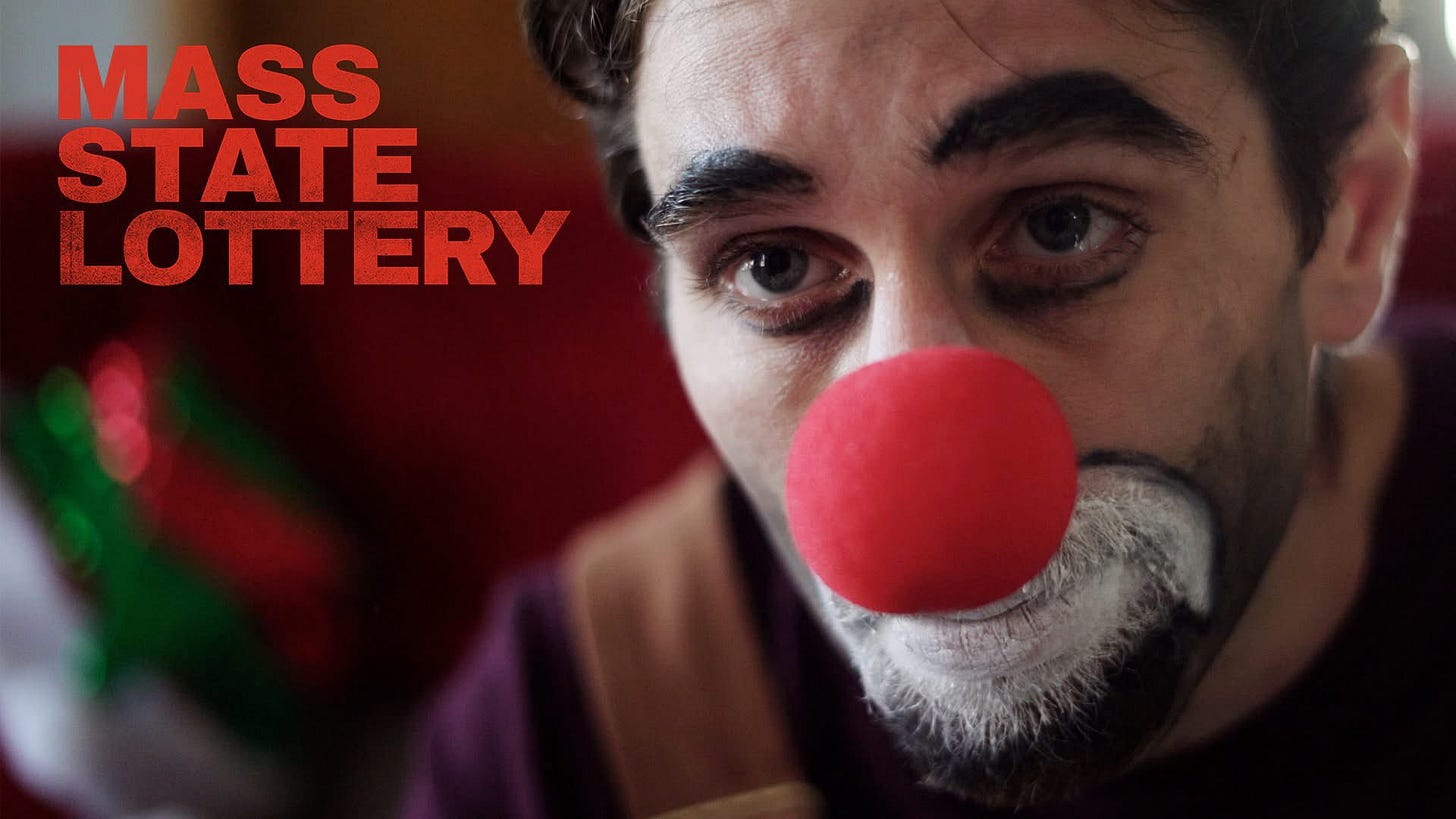A Q&A with a Trump supporting filmmaker
An interview with Jay Karales, aka Lowres Wunderbred, on why he supports Trump and how it affects the way he sees movies.
Let’s try something different here.
Jay Karales is a filmmaker, novelist and comedian, who goes by the alias Lowres Wunderbred. He’s also the co-host of a movies podcast called //MOVIES: A Podcast about the act of cinema.
I first interacted with him, when I was writing a piece for The Spectator about the Criterion Collection. Karales was a critic of its current slate, in contrast to a dedicated fanbase who have been more adoring about any movie that makes it into the boutique’s catalog. He’s also an outlier with the film community in another way: he’s a Trump supporter. Not a person who reluctantly held his nose and voted him in the ballots, but someone who’s an enthusiastic endorser of his ideals. I did not realize that until the election, when Donald Trump pulled a comeback not seen since Richard Nixon in 1968. I thought it would be interesting to ask how someone quite articulate about cinema, can support someone who does not fit with the culture’s progressive instincts. So I went ahead and asked him some questions about that, which he was quite happy to answer. Plus, his upcoming projects which includes Mass State Lottery featuring the late Buddy Duress.
What’s supposed to be achieved in this kind of conversation? Not the kind of kumbaya to become more unified in the next four years, but to know where the culture is going, which I believe will be quite different compared to Trump 2016 when everybody was shellshocked by the results.
We’ve followed each other for a while, and it wasn’t until recently that I learned that you are a Trump supporter. Why do you endorse him and how did you feel about his landmark election victory?
I endorsed him because Donald Trump is the only legend that post-9/11 Americans have been anointed. I have a framed photo of Donald Trump on my wall. Donald Trump is an American hero. I was thrilled by the results.
If you have any advice to the Democrats and their supporters to re-emerge again, what would you tell them?
To Democrats, I would advise being less convincing when lying to yourself. This party doesn’t appeal to anyone but mentally troubled people and it is currently a coalition of desperate numbers. That is going to make them especially dangerous in about three to six years when they figure out how to rebrand.
Do you embrace being an outlier in film spaces that does seem susceptible to smug liberalism?
I’m not sure if I’m an outlier so much as I am casually transparent about my politics. I have many like-minded peers, they just keep their opinions limited to their ‘Personal Friends’ Instagram stories.
How does your politics affect the way you view entertainment?
I find myself sickened by about ¾ the movie trailers I see and can sus out a ‘lib lesson’ piece from any 1 second of entertainment.
Do you judge films solely on a political lens or do you look for more than that?
I try not to let the politics of a film sway my opinion on it as creatively successful or not. But left-wing films have historically been more impressive than culturally right-wing ones.
How do you discern whether or not there are political elements within a film?
Most movies have political elements. It’s more about the film’s conduct. Working Class Goes to Heaven uses the texture of its politics to illustrate a society that its lead character would spawn from. And what we’re given is engaging, even when divorced from its political leanings. This is something that socially activated filmmakers today struggle with.
How do you think the new era of Trump is going to affect the way people like David Ehrlich or some freelance writer nostalgic for Gawker criticize movies?
A: We’re about to pull the ripcord on a microwaved-into-deformity version of the comfy, cozy conservative America of the early ‘00s and the Reagan 1980s. I can’t imagine the playbooks of most of these people who have compulsively dissented will change much. When the media environment around them changes, they’ll either fade out or they’ll become more popular than ever. I suspect it’ll be the first.
Which movies do you think represent the world's love for America, and which ones represent Americans’ disillusion with their own country?
Any Korean film made in the last 20 years has basically been in honor to the United States of the 20th century. hey all do it. (The only one who doesn’t have a grasp is Bong Joon-Ho. He needs to stay in his lane and strictly direct Korean films. Every cross-language film he’s made has been a mess and I expect the new one with Robert Pattinson to be no different). Champion from 2018 is a pretty bad movie but it understands America better than Americans do. The Witch Part 1, also from 2018, feels like a Harry Potter-esque American blockbuster from the late ‘90s or early aughts.
On the flip side, Oliver Stone used to be the master of the ‘disillusioned American’ perspective. You get a less sophisticated strain of that now in anything that wants to serve as a commentary on the collapse of the American dream. Usually, it’s in TV shows. That’s where you find actual idiots in the audience who’ll allow their opinions to be reshaped.
You wrote something in your newsletter about conservative cinema and why it never seems to critically emerge. Do you think it will happen in Trump II?
I don’t think so. Not in the way that I meant in that article. You would need a genuinely talented artist and true believer. But, then again, what we’re seeing is that those people are ‘made’ - they are not born. When people get tired of being pushed around, they throw on a new costume to distinguish their ‘don’t fuck with me’ persona. Conservatism, or Trumpism, just happens to be it right now. I appreciate what Dallas Sonnier has been trying to do with Bonfire Legend, because he’s probably the only guy - at least from what I can see - that wants to make explicitly American conservative films that do not live on the God’s Not Dead reservation. Shut In, with a few more swear words and a theatrical release, could’ve really been something.
What has been the best film criticism that you’ve ever read?
I must admit, I don’t value film criticism as a medium in any significant way. When I do read or watch film criticism, I appreciate it most from sources that are often inconsistent or contradictory with their reviews. I think inconsistency is underrated. Roger Ebert is my favorite example of this, and he was probably the best – even if that’s the Walt Disney / Coca Cola answer.
Who are some of the best critics and content creators on movies out there?
A: James Hancock and Marcus Pinn are the only two modern film critics whose opinions I have any interest in. Jack Mason, Ryan Jackson, and Darius Csiky – I don’t primarily consider them film critics but they wade in film criticism - but I would highly recommend their programs.
What movies would you recommend for people to understand both Trump eras?
For the first Trump era (2017-2021), I’d choose Thomas Vinterberg’s The Hunt (2012), which reveals a time of paranoia and depersoning. The incoming one (2025-2029), I’d probably say Bob Guccione’s Caligula (1979), when the empire finally peaks and we tip over into indulgence.
So can you tell me a bit about Mass State Lottery?
Mass State Lottery is a comedy starring myself and Hans Lam Barboza, based off of real missing persons cases that struck Boston, Massachusetts over a period of about 6 or 7 years in the 2010s.
So how’s Mass State Lottery is going to be distributed?
It’s up for grabs to any distributor who wants to offer a fair deal. I’ve gotten plenty of offers, I don’t like any of them. If I continue to dislike them, I will distribute it through my own company Forgotten Genres.
If Mass State Lottery is released, and some major outlet finds out that you’re a Trump supporter (and potentially downgrade the film), how would you respond?
I would tell them they should cut me a thousand dollars
Buddy Duress is in this film playing a very important character. Can you tell me what it’s like to work with him, and why he never had the bigger opportunity to branch out into acting?
Working with Buddy Duress was a dream. I was very fortunate to obtain that and exact my vision when I was originally writing the script. I wish I didn’t have his final performance, because I would’ve loved to see 100 movies with him in it. I’ve been on the record as saying that before ever even meeting the man. He didn’t branch out into other films because he got comfortable behind bars and it wasn’t a severe enough consequence for him.
He plays two different characters in Mass State Lottery - Ivan, the older brother of the primary missing person and Helmutt the Clown - one of the murder suspects.
What’s going to happen after Mass State Lottery?
Hans Lam Barboza, who was my main co-star in Mass State Lottery and is the other half of the comedic duo I am in, just starred in my second feature film. We wrapped principal photography on it in Queens, New York a little over a week ago. It’s called Disorderly and it’s about a man suffering from a terminal illness using his last days to explore cannibalism.
Besides that, my own personal Project 2025 is just to make and put out as much stuff as possible this coming year.


